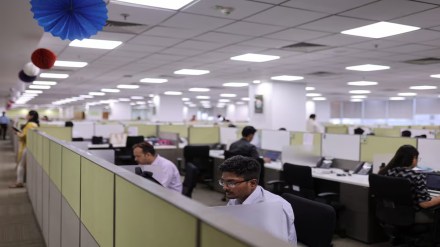Yet another venerable name in corporate India has come out in support of a culture that blindly worships overwork and promotes an environment where employees internalise crazy working hours as the norm. Larsen & Toubro Chairman SN Subrahmanyan’s comments that he would like people to have 90-hour workweeks and that he regrets not being able to make his employees work on Sundays too were bad enough. What made it worse was his misogynistic statement: “What do you do sitting at home? How long can you stare at your wife?” One had expected the head of one of India’s largest companies to have had better etiquette training and a better mindset.
The problem is that many leaders like him genuinely believe overwork is a credential of prosperity and grinding out 70- or 90-hour weeks helps people think of themselves as more dedicated than everyone else. It’s surprising that these leaders fail to recognise that the world has changed, and there are hardly any takers for their heads-down, work-hard theory. It’s nobody’s case that hard work isn’t necessary — of course it is. But it’s equally true that hard work has been deified for far too long. Quite rightly, Subrahmanyan’s comments sparked a backlash, with many pointing out his salary being 500 times more than that earned by an ordinary employee at L&T. But the question is not entirely of the salary gap. Even the highest paid employee has the right to seek a work-life balance to recharge her batteries.
There is just no point in having people moving like a launched missile throughout the working day as no boss would like to be surrounded only by multi-tasking, fast-forwarding zombies, who are always banging the lift button till it stops working. In an only work-hard regime, supervisors and staff implement a template and repeat the same steps. Smart work, on the other hand, is about increasing quality and flexibility; it’s about testing new ideas and methods, and may result in greater outcomes at a lower cost than hard work. Management theorists also tell us individual hard work doesn’t scale. There comes a time in the careers of hard-working managers and leaders in high-growth companies where they hit the wall of their own limitations. This experience is painful in part because it is a challenge to their identity. If your superpower has always been an ability to work hard, it may be difficult to let go of the satisfaction of delivering a result or the adrenaline of being the hero who comes through in crunch times. Leaders should realise that growth happens through scaling the team and creating the conditions for others to execute and succeed.
There is absolutely no point in treating hard work as a security blanket, a fallback that prevents us from actually figuring out what is wrong or why we are not achieving our goals. When the marker of work, be it miles run or pages written, gets mistaken as the barometer of success, the company is doomed to fail. Subrahmanyan’s predecessor AM Naik would often say L&T faces a problem of getting good quality engineers who prefer airconditioned offices rather than sweating it out to build roads or bridges. It’s a valid concern, but the current chairman’s unfortunate comments would only make the L&T recruitment manager’s job even more difficult.
